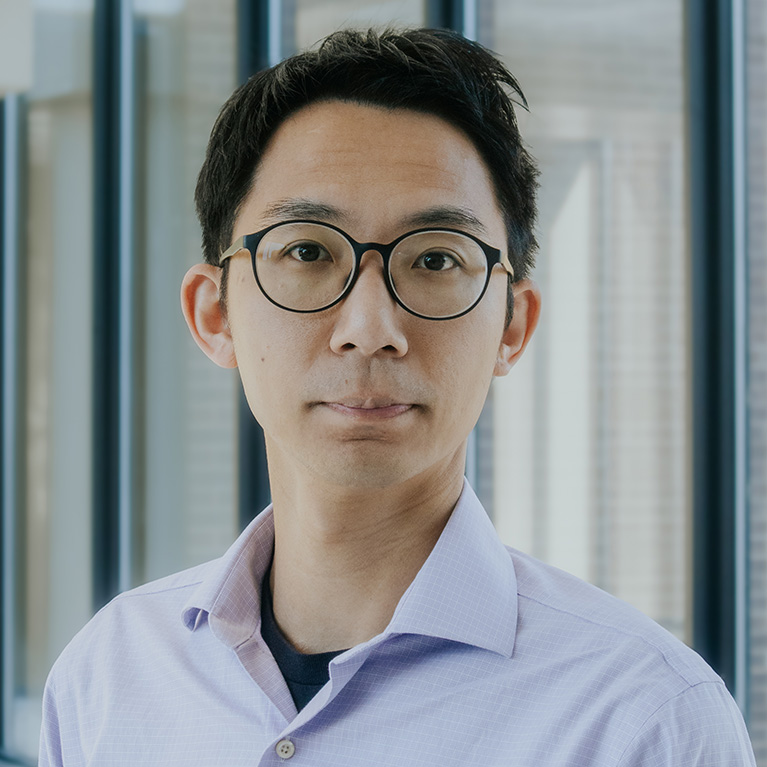
Ka Un Lao, Ph.D.
Associate Professor
Oliver Hall, Room 3046
Electronic structure theory
quantum chemistry
noncovalent interactions
machine learning
computational modeling at nanoscale
Education
- Postdoc, Cornell University
- Ph.D., The Ohio State University
- M.S., National Tsing Hua University
- B.S., National Tsing Hua University
Research Interests
The Lao group is a computational/theoretical group that focuses on developing and applying new electronic structure models and algorithms based on quantum mechanics, combining concepts and techniques from chemistry, physics, mathematics, and computer science, to study molecules, clusters, and condensed phase systems, ranging from chemistry to biochemistry and materials science. One particular area of emphasis is the accurate and efficient calculation of intermolecular interactions, which is a challenging problem for electronic structure theory. Pir research goal is to develop fast and accurate approaches for gaining a fundamental understanding of the factors governing the drug binding and molecular materials packing in order to provide a basis for the development of new drug binding molecules and functionalized molecular materials. Furthermore, adapting the methodology we are going to develop to the rapid evolution of machine-learning techniques offers a unique opportunity to generate new noncovalent molecular electronics and drug molecules through large-scale computational screening and design since the combination of different strategies to functionalize molecules is seemingly infinite. Our group primarily works with a quantum chemistry software program called Q-Chem, to which we contribute new methods and algorithms.
Select Publications
K. Carter-Fenk, K. U. Lao, and J. M. Herbert. Predicting and understanding non-covalent interactions using novel forms of symmetry-adapted perturbation theory. Acc. Chem. Res. 54, 3679 (2021).
E. Epifanovsky et al. Software for the frontiers of quantum chemistry: An overview of developments in the Q-Chem 5 package. J. Chem. Phys. 155, 084801 (2021).
F. Ballesteros, S. Dunivan, and K. U. Lao. Coupled cluster benchmarks of large noncovalent complexes: The L7 dataset as well as DNA-ellipticine and buckycatcher-fullerene. J. Chem. Phys. 154, 154104 (2021).
M. K. Shehab, K. S. Weeraratne, T. Huang, K. U. Lao, and H. M. El-Kaderi. Exceptional sodium-ion storage by aza-covalent organic framework for high energy and power destiny sodium-ion batteries. ACS Appl. Mater. Interfaces 13, 15083 (2021).
K. A. Mason, A. C. Pearcy, K. U. Lao, Z. A. Christensen, and M. S. El- Shall. Non-covalent interactions of hydrogen cyanide and acetonitrile with the quinoline radical cation via ionic hydrogen bonding. Chem. Phys. Lett. 754, 137744 (2020)
Awards
- Macau Excellent Talents Award Scheme (Macau Foundation, 2019)
- Top 10 Outstanding Chinese America Youth Award (2019)
- PCTC Postdoctoral Fellow Award (Penn Conference in Theoretical Chemistry, 2019)
- ACS COMP Division Wiley Computers in Chemistry Outstanding Postdoc Award (2018)
- 1st place oral award at The Edward F. Hayes Graduate Research Forum (OSU, 2016)
- Phi Tau Phi (PTP) Mid-America Scholarship Award (2015)
- ACS COMP Division CCG Research Excellence Award for Graduate Students (2015)
- Presidential Fellowship Award (OSU, 2015)
- 1st place award in Albert L. Henne Research Competition (OSU,2015)
- The President's Scholarship (NTHU, 2009)
- Dr. I-Chi Mei Memorial Medal (NTHU, 2007)
- Honorary member of Phi Tau Phi Scholastic Honor Society in Taiwan (2007)